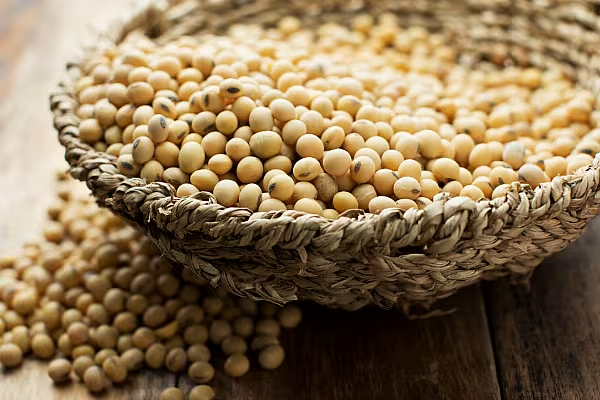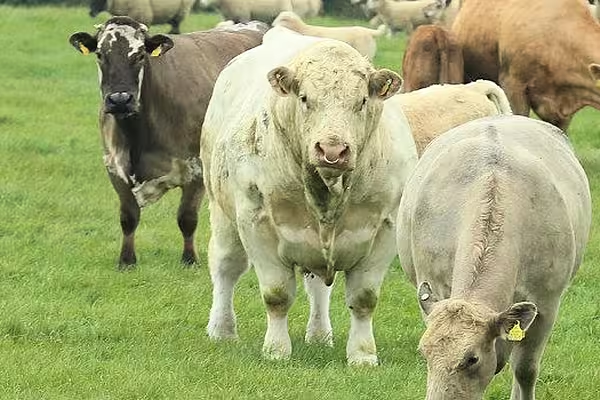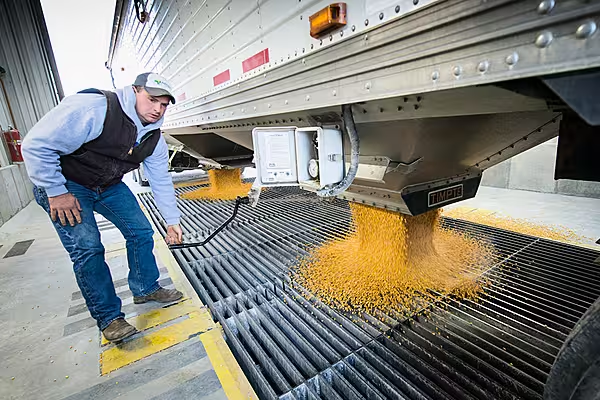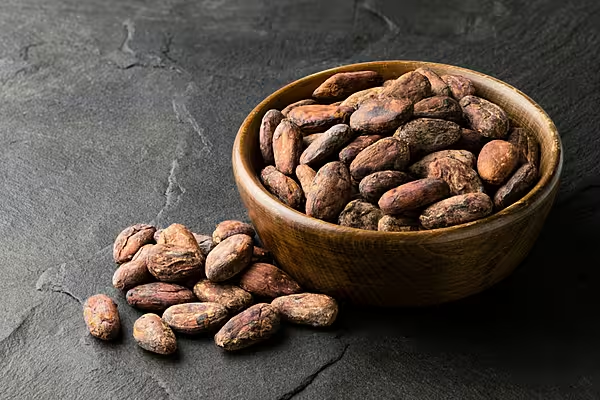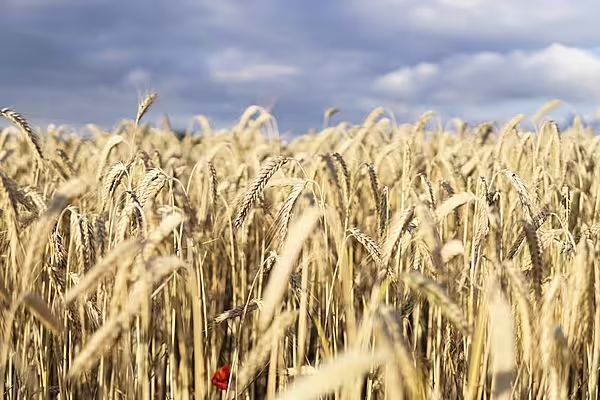Chicago soybeans futures slid on Monday, dropping from previous session's six-week high, after China denied it was considering easing its zero-COVID policy amid declining purchases by the world's top importer.
Wheat lost 1%, falling for three of four sessions, while corn dropped to its lowest level in two weeks.
"There are big questions about the end of COVID-zero policy in China and seemingly few answers," said Phin Ziebell, agribusiness economist at National Australia Bank. "Markets keep speculating it will end and then it doesn't end."
The most-active soybean contract on the Chicago Board of Trade (CBOT) Sv1 was down 0.6% at $14.53-3/4 a bushel, as of 0344 GMT, having risen almost 2% on Friday.
Wheat Wv1 dropped 1.1% to $8.38-3/4 a bushel and corn Cv1 slid 0.6% to $6.77 a bushel, the weakest since Oct. 24.
COVID-19 Infections
China on Sunday reported its highest number of new COVID-19 infections in six months, a day after health officials said they were sticking with strict coronavirus curbs, likely disappointing recent investor hopes for an easing.
Prospects for China to ease some of its COVID-19 restrictions had lent support to soybeans and other markets on Friday. China is by far the world's largest soybean importer.
China's soybean imports in October fell 19% to 4.14 million tonnes from a year earlier, according to Reuters calculations based on customs data released on Monday, as it curbed purchases amid high global prices and poor crush margins.
Soybean imports by the world's top buyer of the oilseed for the first 10 months of the year were at 73.18 million tonnes, down 7.4% compared with last year, data from the General Administration of Customs showed.
Soybean planting in Argentina's core farm belt region is far behind last year's pace due to a lack of rain, the Rosario grains exchange said in a report on Friday, a concern for farmers in the world's top exporter of soy oil and meal.
Drought Conditions
The protracted drought, linked to a third straight La Nina climate pattern, has hammered wheat production and now threatens to affect the upcoming soy and corn season, with farmers likely to invest less in planting unless conditions improve.
Wheat prices fell, although uncertainty about grain exports from the Black Sea region and adverse weather conditions in Australia curbed losses.
Russia wants the West to ease restrictions on state agriculture lender Rosselkhozbank to facilitate Russian grain exports, according to four sources familiar with the request, made during talks to extend a deal on food shipments from Ukraine.
In France, the European Union's largest grain producer, the warmest October in 40 years has accelerated crop development so much that it has left them fragile to sudden frosts later in the season, French crop institute Arvalis warned on Friday.
Large speculators raised their net long position in CBOT corn futures in the week to Nov. 1, regulatory data released on Friday showed.
The Commodity Futures Trading Commission's weekly commitments of traders report also showed that noncommercial traders, a category that includes hedge funds, increased their net short position in CBOT wheat and raised their net long position in soybeans.
News by Reuters, edited by ESM – your source for the latest supply chain news. Click subscribe to sign up to ESM: European Supermarket Magazine.
